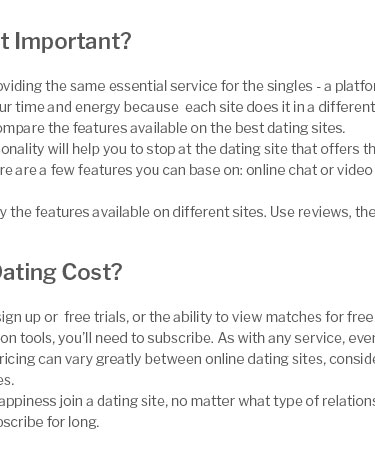extramarital affairs in australia insights and contextMeaning and contextIn simple terms, extramarital affairs involve intimate or romantic connections outside a committed marital bond. In Australia, this topic intersects with relationship health, personal values, privacy, and practical consequences that can affect households and communities. Clarity matters: define the bond you both believe you are in. Forms and patternsCommon forms- Emotional: deep sharing and intimacy without physical contact.
- Physical: sexual involvement without sustained emotional bonding.
- Digital-only: sexting, webcams, stealth social accounts, or anonymous chats.
- Hybrid: emotional closeness that becomes physical.
- Transactional: exchanges tied to favors, status, or resources.
Where connections start- Workplaces and professional networks.
- Friend groups and social circles.
- Online platforms, private forums, and niche apps.
- Conferences, nightlife, and hobby meetups.
Boundaries erode gradually, then consequences arrive abruptly. Motivations and risk factorsMotivations vary and often combine personal, relational, and situational elements. Recognizing drivers can guide prevention or repair. - Unmet needs: affection, novelty, validation, or autonomy.
- Opportunity: proximity, secrecy tools, and permissive peer norms.
- Avoidance: fear of conflict or difficulty expressing needs.
- Impulsivity: sensation seeking and poor self-regulation.
- Strain: financial stress, health challenges, or identity shifts.
Psychology notesAttachment patterns, coping styles, and shame resilience influence choices and recovery. Insight and accountability improve outcomes. Digital landscape and discretionPhones and apps can accelerate connections and complicate secrecy. Some people experiment with niche tools, including a hole hookup app, direct messaging, or hidden chats. Every click can leave a trace, and consent and legality set the floor for acceptable behavior. - Use privacy features ethically; never bypass consent.
- Avoid covert tracking, spyware, or unauthorized account access.
- Separate personal and shared devices with clear boundaries.
- Discuss expectations about passwords, location sharing, and photos.
- Assume messages and images can resurface.
- Disable previews on shared screens.
- Revisit social media boundaries and tagged content.
- Keep identifying details out of risky chats.
Safety, consent, and legality outrank curiosity. Impact on relationshipsAffairs can disrupt trust, identity, intimacy, and family dynamics. Effects range from shock and confusion to conflict and withdrawal. Surface fallout and deeper patterns- Surface: secrecy, defensiveness, sudden privacy changes, and blame.
- Deeper: entrenched avoidance, resentment cycles, and parallel lives.
- Wellbeing: sleep disruption, appetite changes, anxiety, and rumination.
- Finances: hidden spending, gifts, travel costs, or digital subscriptions.
Truth restores agency; avoidance feeds doubt. Legal and ethical considerations in AustraliaAustralia treats intimate relationships through civil frameworks rather than criminal punishment for adultery. Conduct around privacy, property, and parenting carries greater weight than moral judgments. - Infidelity itself is not a criminal offence.
- Secret recordings can breach surveillance and privacy laws; rules differ by jurisdiction.
- Misuse of shared funds may affect property outcomes.
- Public accusations may create defamation risk.
- Workplace policies on relationships, conflicts of interest, and harassment can apply.
Seek qualified legal advice for location-specific rules. Communication and boundaries- Assess safety and stabilize essentials: housing, money, and care responsibilities.
- State facts without loaded labels; ask for a clear account of boundaries crossed.
- Request transparency protocols that are proportional and time-limited.
- Define respectful contact rules with third parties.
- Choose a pathway: pause, repair with structure, or separate with dignity.
Curiosity without compassion can feel like interrogation. Dating choices and platformsSome people leave affairs and start anew; others exit relationships entirely before dating again. Preferences vary: monogamy, consensual non-monogamy, or a single life. Niche platforms can help match expectations, such as a never married dating site for those seeking partners who have not married. - Align values and boundaries before meeting.
- Disclose relationship status honestly.
- Protect privacy and practice safer intimacy.
Support and recovery- Therapists and counselors for individual or couple work.
- Financial advisors for budget reviews and asset protection.
- Legal services for property, parenting, and safety planning.
- Peer groups and confidential helplines for perspective and relief.
Small, honest steps compound into stability. Myths and misconceptions- Myth: Affairs only happen in unhappy relationships. Reality: opportunity and poor boundaries can override satisfaction.
- Myth: Ending contact fixes everything. Reality: trust needs transparency, empathy, and consistent repair.
- Myth: Cheaters never change. Reality: change follows insight, structure, and accountability.
- Myth: Proof guarantees favorable legal outcomes. Reality: financial and parenting interests usually matter more.
FAQAre extramarital affairs illegal in Australia?Extramarital affairs are not a criminal offence in Australia; however, secrecy tactics that breach privacy laws, misuse of funds, or violations of workplace policies can create legal and professional risk. Is proof of infidelity required to end a marriage?No. Formal dissolution does not require proving wrongdoing. Evidence can matter for issues such as financial wastage or parenting arrangements, but moral fault is generally not decisive on its own. What signs might indicate an affair?Common patterns include guarded devices, unexplained spending, secretive social accounts, abrupt privacy changes, and defensiveness about whereabouts. None of these confirm anything in isolation. How should evidence be gathered ethically?Avoid covert recording, device tampering, or password theft. Preserve financial records legitimately, document observations factually, and seek legal guidance before collecting or sharing sensitive material. Can a relationship recover after an affair?Recovery is possible with clear disclosure, empathy, compassionate accountability, structured transparency, and skills training around conflict, intimacy, and boundaries. Where can someone find support in Australia?Options include relationship counselors, psychologists, legal services, financial advisors, and confidential helplines. Seek qualified professionals for tailored guidance.

|




















